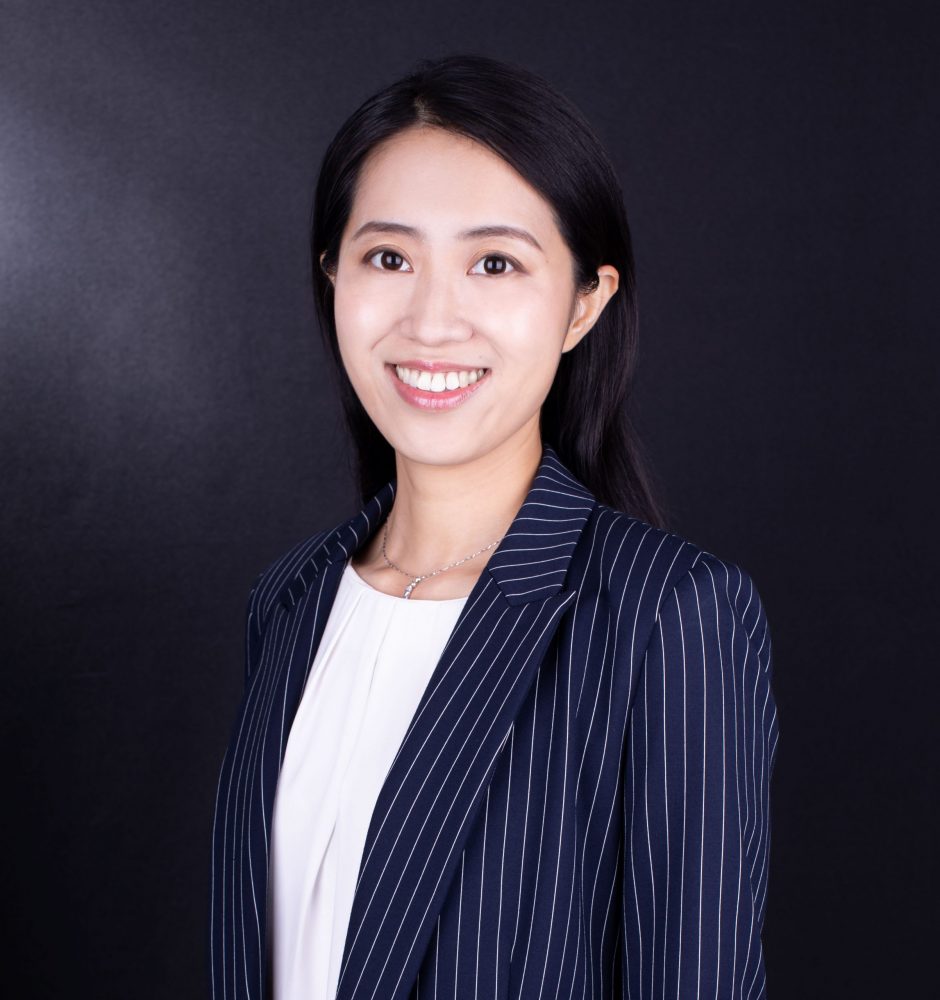Fixated on finding an ideal partner? You may be missing out on your true match! HKU Business School’s Assistant Professor of Marketing, Ivy Dang, recently studied how people approach online dating platforms. She found that holding onto rigid ideals of the ‘perfect partner’ (i.e., Mr./Ms. Best) can end up overlooking genuinely compatible matches (i.e., Mr./Ms. Right).

3917 1614
KK 709
- Ph.D. in Marketing, The Chinese University of Hong Kong
- M.S. in Economics, The Chinese University of Hong Kong
- B.S. in Applied Physics, Beijing Jiaotong University
Professor Chu (Ivy) Dang’s research focuses on the economics of information in the domain of quantitative marketing. She studies how consumers search for information, how information influences their choices and the information provision strategies of firms. Her interests also extend to social media marketing. She explores the effects of both Marketer-Generated Content (MGC) and User-Generated Content (UGC). She also studies emerging trends in live-commerce and influencer marketing. In her spare time, Professor Dang enjoys running, hiking and playing with her little one.
- Social Media Marketing
- Introduction to Marketing
- Quantitative Marketing
- Economics of Information
- Consumer Search
- Social Media
- Influencer Marketing
- Shen, Hongchuan, Chu (Ivy) Dang, and Xiaoquan (Michael) Zhang (2024), “Mr. Right or Mr. Best: The Role of Information Under Preference Mismatch in Online Dating,” Information Systems Research, 35 (4), 2013-2029. https://doi.org/10.1287/isre.2022.0233
- Hu, Mantian, Chu (Ivy) Dang, and Pradeep K. Chintagunta (2019), “Search and Learning at a Daily Deals Website,” Marketing Science, 38 (4), 609-642. https://doi.org/10.1287/mksc.2019.1156
- Dang, Chu (Ivy) (2017), “Network-Based Targeting: Big Data Application in Mobile Industry,” Big Data Applications in the Telecommunications Industry, IGI Global, 78-107. (Book Chapter)
Selected working papers:
- “Going Back to Move Forward? How Search Revisits on a Website We Built, and in Field Data, Inform Us about Search Outcomes” (with Raluca Ursu and Pradeep Chintagunta)
- “Quantifying the Effect of Visual and Content Features on Social Media Engagement with MGC” (with Canice Kwan, Yang Shi and Jayson Jia)
- “Product Search, Sourcing and Curation in Live-Commerce: Evidence from a Quasi-Experiment” (with Jialu Liu)
- PI, General Research Fund, #17506824, Hong Kong RGC
- PI, Early Career Scheme #27504221, Hong Kong RGC
- PI, Basic Research Fund, HKU Business School Shenzhen Research Institutes
- PI, Seed Fund for Research, HKU
This paper examines the role of information in two-sided matching markets where preference mismatch is present. Two-sided markets are characterized by different preferences of the parties involved, and a match occurs when both sides show a preference for each other. In practice, however, there is often a preference mismatch. In this study, we use a large data set from an online dating website to provide empirical evidence for preference mismatch in the field. We also develop empirical models to investigate the impact of information under preference mismatch by analyzing variations in the amount of available information. Specifically, we compare partial and complete information contained in the users’ short and long profiles, respectively. We find that more information about the other side does not necessarily improve the likelihood of a match. In fact, the side making the proposal has a better chance of matching if the decision is based on the information contained in the short profile rather than the long profile. This suggests that users are better off seeing partial rather than complete information about the candidates, a phenomenon we refer to as the “less information is more” effect. Our empirical analysis shows that this effect is driven by the mismatched preferences of the two sides. These results imply that there is an optimal amount of information that one side should possess about the other before making a proposal. Our study highlights the importance of optimal information design strategies to determine the appropriate amount of information that should be provided to each side. Our findings also offer managerial implications regarding information provision strategies for online platforms in general.
As a science person, I am impressed by our students' strong business acumen. But as a teacher, other than teaching them how to use quantitative tools to make scientific claims, I also hope that I can encourage them to continue to stay inquisitive about the world and apply their classroom knowledge for the betterment of the society.
Starting off as a science major in Applied Physics and spending two years studying Quantum Physics at PhD level, Dr. Dang had eventually realised that her true interest lies in quantitative marketing. Dedicated to apply the quantitative reasoning and problem-solving skills from natural science to business studies, Dr. Dang has officially joined us on February 2020 as an Assistant Professor in Marketing.
As coronavirus rages across the globe, online business is still booming, with data and analytics driving this trend. People now marooned at home for the foreseeable future are finding the daily goods they need from online stores, solace in conferencing apps, and entertainment provided by streaming platforms. The world is revolving increasingly online with lockdowns in place, and data is being even further highlighted as an undisputable source of wealth.





